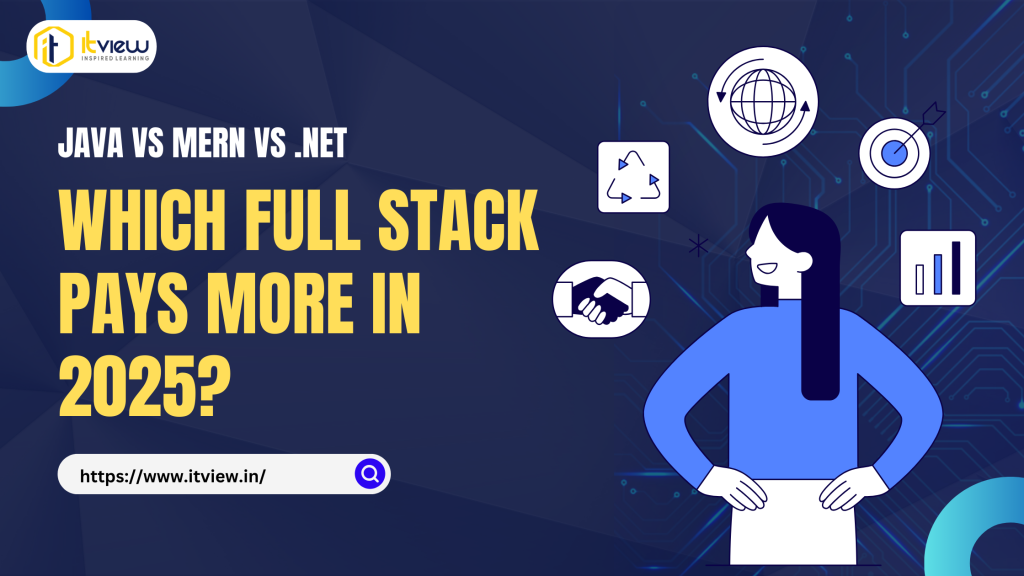In the ever-evolving landscape of web
development, two popular roles often come up in discussions: MEAN stack
developers and full stack developers. While both roles involve working with multiple
technologies to create comprehensive web applications, they differ in their
specific tech stacks, skill sets, and areas of focus. This article aims to
clarify the differences between MEAN stack and full stack development, helping
you understand which role might be more suitable for your project or career
aspirations.
What is a
MEAN Stack Developer?
MEAN is an
acronym that stands for MongoDB, Express.js, Angular, and Node.js. MEAN stack
developers specialize in using this specific set of technologies to build
dynamic and scalable web applications. Here’s a brief overview of each
component in the MEAN stack:
- MongoDB: A NoSQL database that stores data in a
flexible, JSON-like format.
- Express.js: A
minimal and flexible Node.js web application framework that provides a
robust set of features for web and mobile applications.
- Angular: A front-end web framework developed by
Google for building dynamic, single-page applications (SPAs).
- Node.js: A JavaScript runtime built on Chrome’s
V8 JavaScript engine, allowing developers to build scalable network
applications.
Responsibilities
of a MEAN Stack Developer
MEAN stack developers are responsible for
handling both the front-end and back-end aspects of a web application. Their
tasks typically include:
- Designing and developing SPAs using Angular.
- Creating server-side logic and APIs with Express.js and Node.js.
- Managing databases and ensuring efficient data storage and
retrieval with MongoDB.
- Collaborating with designers and other developers to create
seamless user experiences.
- Troubleshooting and debugging applications to ensure optimal
performance.
What is a
Full Stack Developer?
A full stack developer is a generalist who
works with both front-end and back-end technologies to build web applications.
Unlike MEAN stack developers, full stack developers are not limited to a
specific set of technologies. They can work with a variety of tech stacks,
depending on the project requirements. Commonly used tech stacks by full stack
developers include LAMP (Linux, Apache, MySQL, PHP), MERN (MongoDB, Express.js,
React, Node.js), and many others.
Responsibilities
of a Full Stack Developer
Full stack developers have a broad range of
responsibilities that can vary based on the tech stack they use. Some common
tasks include:
- Developing user interfaces using front-end technologies like HTML,
CSS, JavaScript, React, or Angular.
- Building server-side logic with back-end technologies such as
Node.js, Python, Ruby, PHP, or Java.
- Managing databases, whether they are SQL (like MySQL, PostgreSQL)
or NoSQL (like MongoDB, Cassandra).
- Ensuring cross-platform optimization and mobile responsiveness of
web applications.
- Collaborating with cross-functional teams to deliver comprehensive
web solutions.
- Continuously learning and adapting to new technologies and tools to
stay relevant in the industry.
Key
Differences: MEAN Stack Developer vs. Full Stack Developer
Technology
Stack
- MEAN Stack Developer:
Focuses specifically on MongoDB, Express.js, Angular, and Node.js.
- Full Stack Developer: Works
with a variety of tech stacks, depending on project requirements and
personal expertise.
Flexibility
- MEAN Stack Developer:
Limited to the MEAN stack, which can be advantageous for projects that
specifically require this set of technologies.
- Full Stack Developer: More
flexible in terms of technology choices, making them suitable for a wider
range of projects.
Skill Set
- MEAN Stack Developer: Deep
expertise in the MEAN stack technologies, making them highly proficient in
this specific environment.
- Full Stack Developer:
Broader skill set that includes multiple front-end and back-end
technologies, making them versatile and adaptable.
Full Stack
Developer Skills vs. MEAN Stack Developer Skills
The skill sets of full stack developers and
MEAN stack developers overlap but also have distinct differences:
- MEAN Stack Developer Skills:
Proficiency in JavaScript, knowledge of MEAN stack technologies (MongoDB,
Express.js, Angular, Node.js), and experience in developing SPAs.
- Full Stack Developer Skills:
Proficiency in multiple front-end and back-end languages, frameworks, and
libraries (such as HTML, CSS, JavaScript, React, Node.js, Python, Ruby,
PHP), database management skills, and knowledge of cross-platform
optimization techniques.
MEAN Stack
Developer vs. Full Stack Developer Salary
Salaries for MEAN stack and full stack
developers can vary based on factors like experience, location, and the
specific demands of the job market. Generally, full stack developers may
command higher salaries due to their broader skill set and versatility.
However, MEAN stack developers with specialized expertise in their stack can
also earn competitive salaries, especially in projects requiring deep knowledge
of the MEAN technologies.
Choosing
the Right Developer for Your Project
When deciding between a MEAN stack developer
and a full stack developer, consider the following factors:
- Project Requirements: If
your project specifically requires the MEAN stack, a MEAN stack developer
would be the best fit. For projects with varying tech requirements, a full
stack developer’s versatility might be more beneficial.
- Development Speed: MEAN
stack developers might offer faster development within their specialized
stack, while full stack developers can handle a broader range of tasks but
may take more time to adapt to specific technologies.
- Scalability: Both
roles are capable of building scalable applications, but the choice of
tech stack can influence the scalability options available to you.
- Budget: Full stack developers might demand
higher salaries due to their broader skill set, whereas MEAN stack
developers might be more cost-effective for MEAN-specific projects.
Understanding the differences between MEAN
stack developers and full stack developers is crucial for making informed
decisions about hiring and project management. While MEAN stack developers
offer specialized expertise in a specific set of technologies, full stack
developers provide versatility across multiple tech stacks. Assessing your
project’s specific needs and constraints will help you determine which type of
developer is the best fit for your web development goals.
Ready to Master the MEAN Stack?
Unlock the full potential of web development with our comprehensive MEAN
Stack classes! Whether you’re looking to specialize in MongoDB, Express.js,
Angular, and Node.js or elevate your existing skills, our expert-led courses
will provide you with the knowledge and hands-on experience you need to excel.
Don’t miss out on this opportunity to become a proficient MEAN Stack developer
and take your career to the next level.
Join our MEAN Stack classes today and start building dynamic,
scalable web applications!



